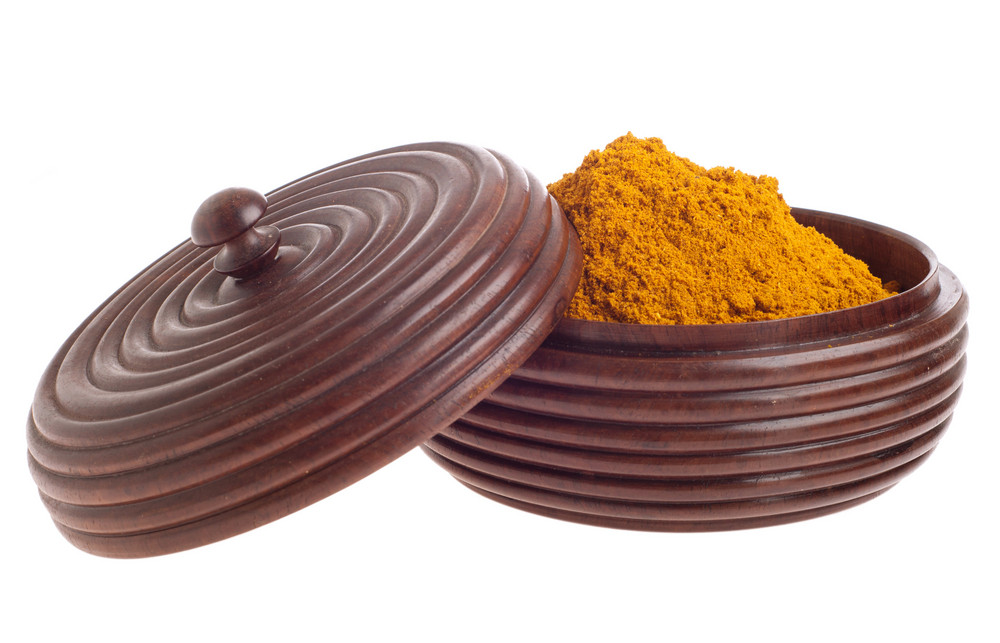Why is Turmeric Good for Dogs?
Everyone is talking about turmeric, the spice which comes from the turmeric root.
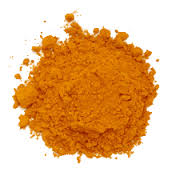
But what is it about this ancient medicine, and why is the Western world finally catching up to what Eastern and Ayurvedic medicine has known for centuries?
Most importantly, how can turmeric help our dogs?
All about Turmeric – from an Australian Vet
Did you know that dogs can benefit substantially from adding turmeric to their daily diet?
Don’t just take my word for it. I reached out to Doug English, a veterinarian at Marlin Coast Vet Hospital (North Queensland), who has been using turmeric for several years on both himself and his animal patients.
Doug has seen very positive results in his patients for allergic dermatitis, atopy, Queensland Itch in horses, arthritis in both dogs and horses, irritant bowel disease, and an increased athletic ability and general improvement in health overall.
He has also noticed that both dogs and horses accept and enjoy turmeric in their diet.
For me personally, I’ve found on many occasions advising dog owners to switch to a better quality dry food (Pet Food Australia is a bible in that respect) and a daily dose of turmeric powder appears to make the world of difference. I’ve found this to especially be the case when a dog’s belly or neck region is inflamed in the summer months.
An easy way to feed turmeric to your dog
Kate, one of Doug’s clients, has seen a dramatic improvement in the health of her dog Scooter since adding turmeric to his diet.
This is her easy way of feeding turmeric to her dog:
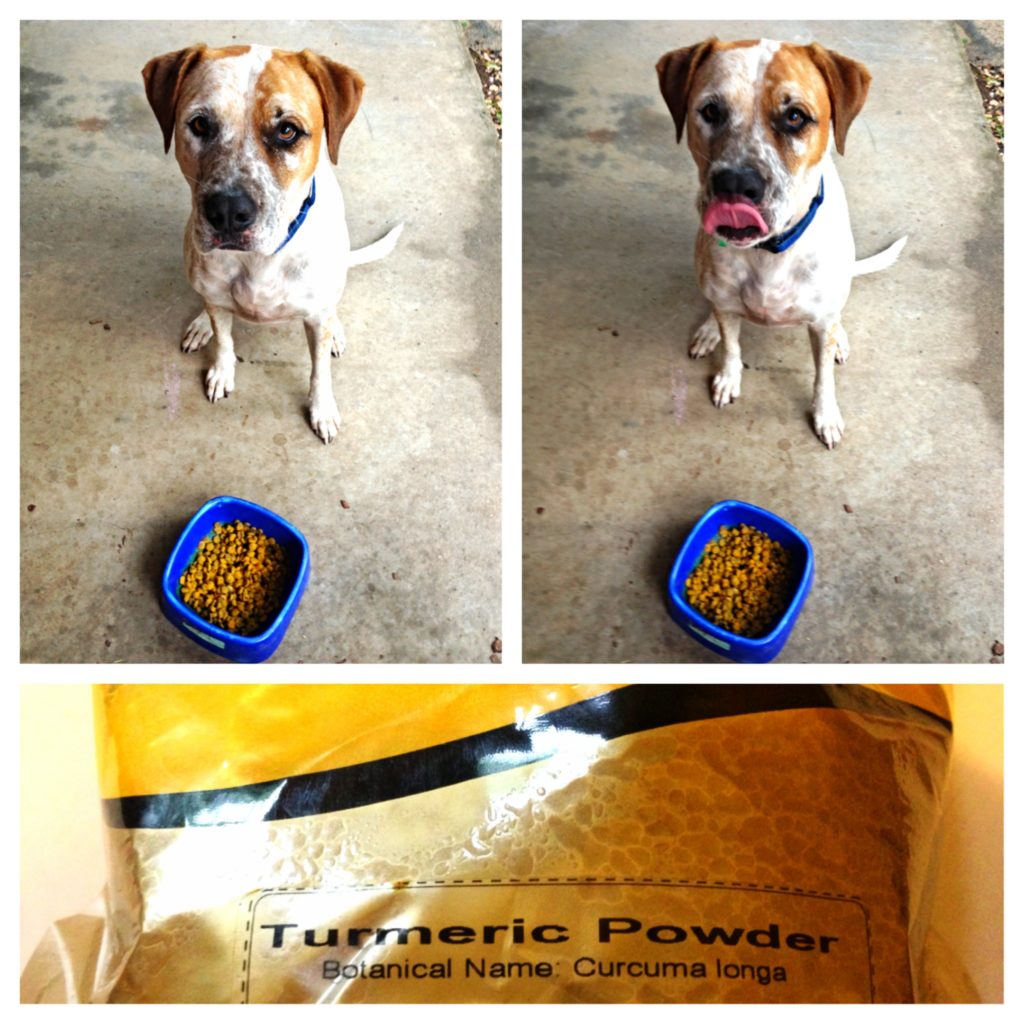
Firstly, put a teaspoon of turmeric powder in a cup, add a dash of freshly cracked pepper, and a dessertspoon of olive oil.
According to Doug, both the cracked pepper and oil increases the metabolic effect (absorption) of turmeric into your dog’s body. Oil such as olive, coconut, or linseed are best because they are higher in omega 3 and have less omega 6 components which can lead to an increase in inflammation.
Boiled hot water is added to the above ingredients until the cup is 1/3 full. Then leave to sit and cool for a few minutes.
It really is as easy as that – even if you’re terrible in the kitchen!
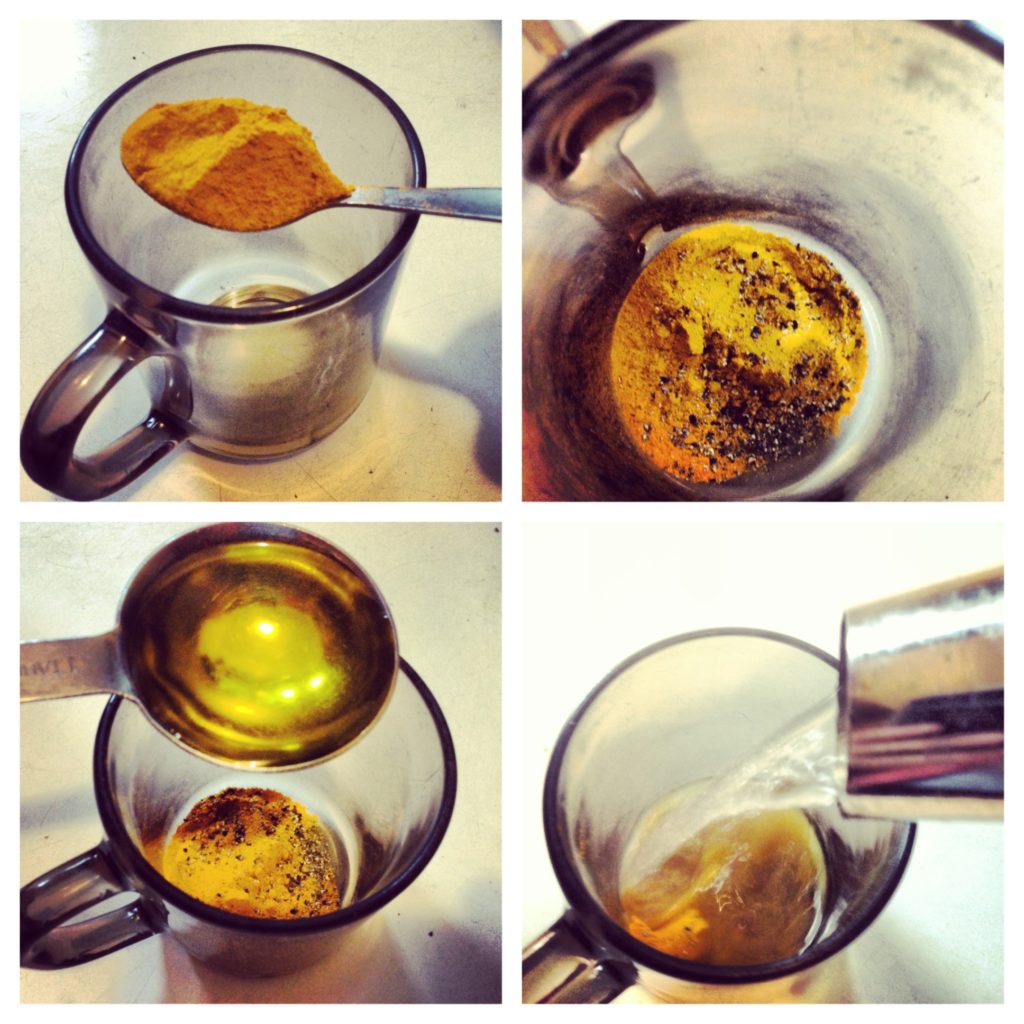
You can give your dog the mixture just like that, or top it up with milk or soup (bone broth is a great choice) to make it more palatable.
Another option is to pour the warm broth onto your dog’s dry biscuits. When the mixture has thoroughly soaked through and cooled off you can give it to your dog.
Kate has a great routine of feeding Scooter a cup of the turmeric mix after his morning run.
Scooter then proceeds to devour the contents and lick his dog bowl completely clean, sometimes pushing the bowl to the other side of the kitchen. No other food will capture Scooter’s attention so much, even with raw meaty bones being a close second!
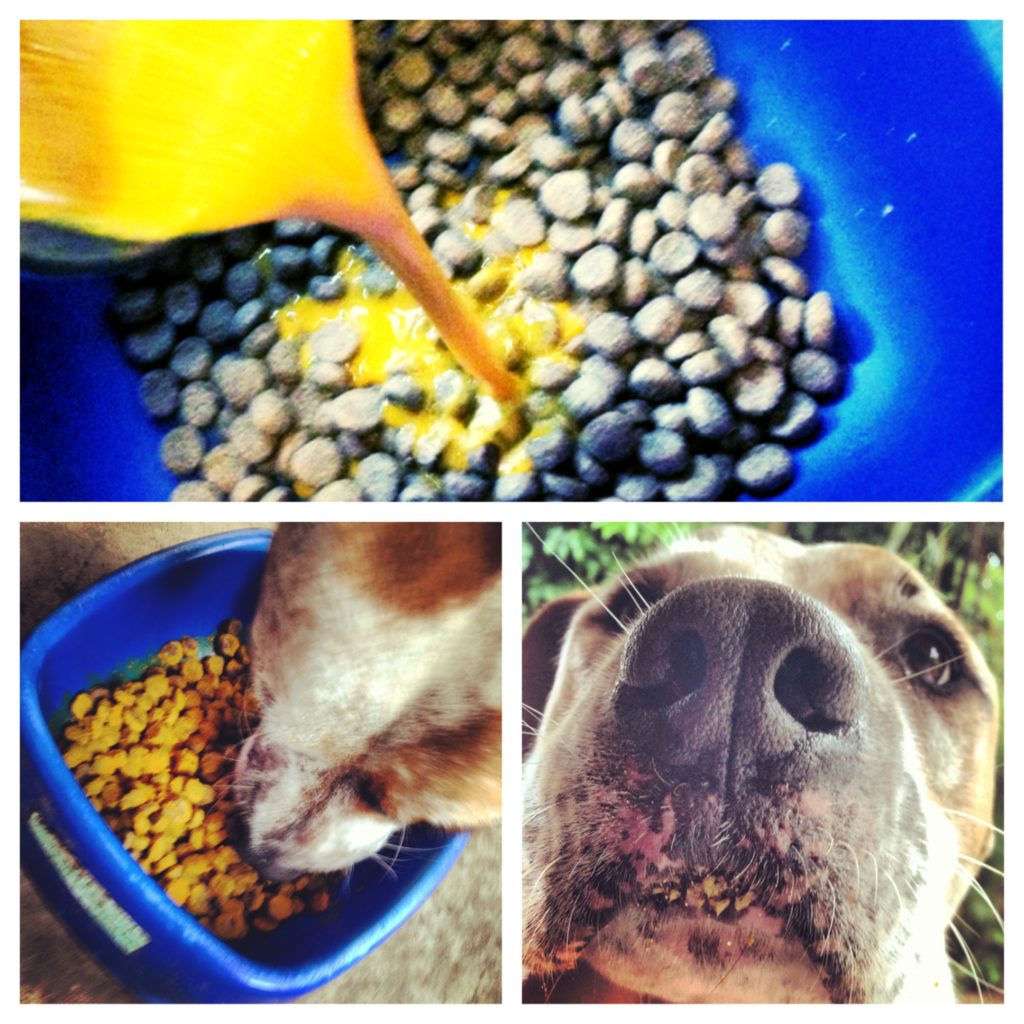
Scooter is well and truly a “Turmeric Dog”!
Related: Turmeric recipes for dogs.
Benefits of turmeric for dogs
Turmeric is one of the most extensively researched herb-spices for pharmacological use. It is recognised for its beneficial use in treating and reducing symptoms linked to an extensive range of health conditions due to its effectiveness as:
- A pain reliever;
- An antibacterial and antiseptic;
- An anti-inflammatory and anti-oxidant;
What conditions is turmeric good for?
A great deal is known about Turmeric’s medicinal effectiveness, and it can be used to both prevent and treat the following in both canines and humans:
- Arthritis and joint inflammation
- Bacterial infections, wounds and burns – can be teamed with raw honey and applied topically as an external broad spectrum antibiotic (see recipe below);
- Blood purifier – beneficial in the treatment of skin disorders;
- Cardiovascular conditions;
- Chemotherapy – reduces the negative side-effects of chemotherapy;
- Detoxifier;
- Settling upset tummies;
- Preventing gas/bloating;
- Alleviating inflammation (turmeric’s anti-inflammatory quality has been compared to topical hydrocortisone); and
- Treating Inflammatory Bowel Disease (IBD).
In addition it is also high in fibre, rich in vitamins and can aid weight loss as it speeds up the metabolism.
Common questions about turmeric for dogs
Is turmeric safe for dogs?
As with anything, moderation is important. Turmeric is safe for dogs in moderation, but in excess can cause gastrointestinal problems. As a supplement it’s very rarely a problem as you’re keeping it in moderation.
CBD oil with turmeric for dogs
In Australia, CBD oil is often combined with turmeric to enhance its healing properties. The combination of these two natural ingredients is known to be especially effective in treating a wide range of health issues.
CBD oil is extracted from the cannabis plant and is known for its pain-relieving and anti-inflammatory effects. When combined with turmeric, the two ingredients work together to provide relief from a variety of health issues.
Turmeric for fleas on dogs
Some people recommend using turmeric for fleas on dogs as a natural remedy. This has especially been the case since brands like Revolution and Frontline have negative press.
This can be done either by including turmeric in the diet (such as with the turmeric recipes above), as a salve, or by adding it to their shampoo.
While there is no scientific evidence to support the use of turmeric for fleas, it’s so beneficial there’s really no harm in adding this to your arsenal – I’ve tackled fleas myself and from this experience know too well you need to hit them from every angle.
Turmeric versus glucosamine for dogs
There are pros and cons to both glucosamine and turmeric for dogs.
Glucosamine is an amino sugar that is produced naturally in the body, and it helps to form and maintain cartilage, which is important for healthy joints.
Turmeric is a plant that has long been used in traditional medicine, and it contains compounds called curcuminoids that have anti-inflammatory properties.
Overall, there is evidence to suggest that glucosamine may be more effective than turmeric for reducing inflammation in dogs with arthritis, but turmeric does have benefits over glucosamine.
This includes the fact turmeric is a natural product with no known side effects.
Both supplements have their advantages, and there is no reason both can’t be used in treating joint issues or arthritis in dogs.
Turmeric for dogs with pancreatitis
Turmeric has been shown to be effective in the treatment of pancreatitis in dogs. A study published in the journal Veterinary Medicine & Science found that turmeric was able to significantly reduce inflammation and improve digestive function in dogs with pancreatitis.
Another study, published in the American Journal of Veterinary Research, found that turmeric was effective in reducing pain and inflammation associated with pancreatitis in dogs.
Turmeric is a safe and effective supplement for dogs with pancreatitis. If you’re looking for a natural way to help your dog find relief from this condition, turmeric may be worth trying.

